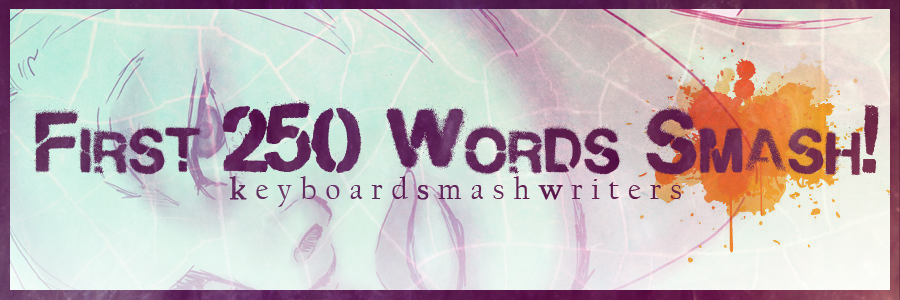Terrible, Horrible Editor: Victoria
Working Title: N/A
Long ago, there was a maid, not a maiden. She is fair, but more importantly she is brave and canny and just a bit mad. Perched on the bed, grimy with misuse, she listens for the step on the stair. She breathes and her hands still, slipping the stiletto within the casing of her corset. Whore’s get, they call her. Maybe they’re right; maybe her road always led here.
The door opens and before it can close, she has the man pinned against the wall, her knife at his throat and fire in her eyes.
“I will not.”
Defiant, she stares him down. He’s young. She hadn’t expected that. Youths, they think they should get it for free until she reminds them, scarring words written in silver and blood across their hearts.
His hands raise, the fear raw in his eyes, and she’s not yet cruel enough to ignore a cry for mercy. She pulls the blade back, a single bead of blood staining the fine lawn of his shirt. He’s pretty, really.
“Please.” His voice is hoarse. “I mean you no harm. So don’t kill me; I’m really rather attached to this body. I have a proposition for you.”
In a flash, the knife is back.
“Not that!” He flails, trying to evade any further nicks or worse. "If I swear to any God you wish that I have no intention of touching you, will you put the damn thing down?"
Strong Points--
You wasted no time in getting to the action, which is a really good way to hook us into the story. It's all too easy to start a story with exposition that we think is important, but you didn't do that. Good! I'd much rather dive right into the story and find out what the heck is going on as we travel ahead!
Also, we get a good sense of character asap. Your lead female, her actions speak volumes about what kind of girl she is and what kind of awful things have already been done to her, as well as what they've turned her into. It also shows a lot about the boy that he's willing to do just about anything to not get slain, so he's kind of a pansy, but that's okay.
You've snuck a few good descriptor words in there, such as the 'grimy' bed and mentioning her corset (which can really set what sort of time period this may be happening in).
Some Tips--
I found a lot of telling. 'She is fair,
but more importantly she is brave and canny and just a bit mad', 'defiant', and 'she’s not yet cruel enough to ignore
a cry for mercy' for starters. These are things that would be so much more powerful if you showed us how she does this, as opposed to just outright telling us.
In fact, I think this article that WriteWorld did on showing vs. telling does a much better job than I could, so check that out! It will help strengthen your narrative and make this exponentially more wonderful.
Also, I would highly suggest changing your first line or two. They're right there in cliche territory, and it's best to avoid those at all costs. I do appreciate the comparison to a fairytale, and the stark contrast between a fairytale setting and what we have here, however, I would prefer to see it done in other ways, such as your themes, your situations, your characters, and some twisted tropes.
More imagery would also greatly help me visualize what I'm seeing. I already pointed out some good descriptors, now push that. What kind of room is she in? Is it dark or light? What does 'pretty' mean to your character in regards to a boy? There's so much information a setting can give, so utilize that.
Would I Keep Reading?
I think I may, as I'm intrigued by your main character. Who doesn't love a bamf? I think that if you fix these things and resubmit, though, I will be begging you to read more. They will turn an okay opening into a punch in the face.
A good punch in the face.
Good luck, and please resubmit!! <3 <3 <3 <3
